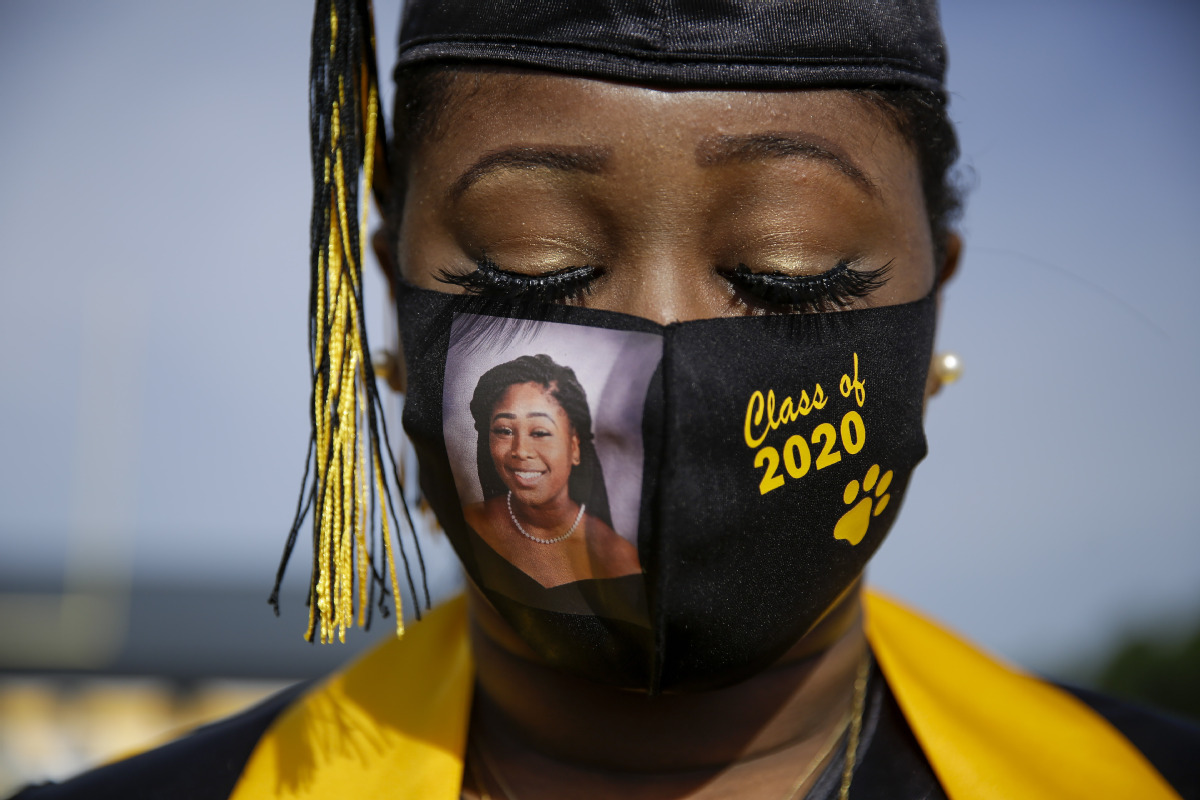Stark divisions haunt the Stars and Stripes
By Chang Jun | China Daily Global | Updated: 2021-01-05 09:55

To many US citizens and worldwide observers like myself, the 2020 presidential election was a lengthy suspense thriller, containing jaw-dropping twists and conspiracy theories.
The post-election chaos, mounting numbers of COVID-19 casualties and confirmed cases, and the 6.7 percent unemployment rate nationwide have created a surreal apocalyptic scene.
I couldn't help but wonder, "Is this still the United States? What has gone wrong?"
On Dec 22, US President Donald Trump released a video statement in which he once again claimed, as he repeatedly did in the past seven weeks, that the 2020 presidential election is "rigged with massive fraud".
A poised Trump explained why he has been pursuing "each and every legal and constitutional option available-filing lawsuits against state governments regarding procedural violations, holding public hearings on election irregularities and asking multiple ballot recounts in key swing states-in order to stop the Democrats 'theft' of the election.
"We won this election by a landslide. We won it big," Trump reiterated.
Although Trump and his team were bombarded by serial setbacks in their efforts to overthrow the election, the farce does not show any sign of a quick fade.
Trump still refuses to concede although the popular vote for the elections held on Nov 3 and the vote of the Electoral College on Dec 14 confirmed Joe Biden's victory.
There is no doubt the cloud of uncertainty will linger in the West Wing of the White House and beyond, at least before Jan 20, 2021 when the 46th US president will be inaugurated.
On one hand, what Trump will do in his last days is hard to predict. How efficient will Biden be to mobilize the people to rebuild the country and restore their confidence in the system remains unclear.
The essential issue awaiting the new administration is to unify a divided US.
Anyone who has witnessed the deteriorating US political landscape would understand why Biden has to implore Trump supporters by saying "Let's give each other a chance" on his election acceptance and victory speech on Nov 7.
Over the years, Democrats and Republicans could rarely reach consensus on any issue-whether it is climate change, law enforcement, the economy, racial inequality, international collaboration.
On Capitol Hill, politicians regularly put partisan divide on display.
House of Representatives Speaker Nancy Pelosi tore up her copy of Trump's State of the Union address on Feb 4 in front of the cameras after he delivered his speech to the joint session of Congress in Washington.
Disunity spreads
The divisions at the top are felt among the general public.
A high-tech engineer from Silicon Valley who might be a beneficiary of globalization will not sympathize with the interests of a fervent Trump supporter from the Rust Belt to bring manufacturing jobs back.
Like it or not, the 74 million Trump supporters are those who wave the "Make America Great Again" flag, organize multiple rallies in November and December such as the Million MAGA March, Stop the Steal, and March for Trump in Washington, vowing to support Trump by all means to seize victory in this election.
An October survey conducted among registered voters by the Pew Research Center said approximately 80 percent believe the election goes way beyond politics and policies.
Instead, it's about choice. They believe it is a choice in which direction the US is heading, progressive or conservative, and to decide what are core US values. It is anti-abortion vs pro-choice, globalism vs localism, religion, equal opportunity, and immigration among others.
The results of the survey were complex.
In both the pro-Trump and pro-Biden camps, about 90 percent reported they were concerned the winner on the other side would lead to "lasting harm" to the nation.
The severity of the division might explain why so many US citizens have fallen victims to the coronavirus pandemic this year.
Maybe it is time for the US to heal, as Joe Biden declared.
"To make progress, we have to stop treating our opponents as our enemies. They are not our enemies. They're Americans."
























